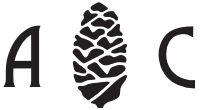Alder Commons uses iterative community practices (aka emergent strategies) to do our best to constantly adapt and improve according to the changing needs of the community. This is the case on an organizational level, on a program-specific level, and on a personal level. In that spirit, this resource is subject to change!
Community Agreements
When we meet as a group, we practice the following Community Agreements:
- Acknowledge and tend to the impact we have on others, regardless of our intent
- “Give space, take space”: be aware of how much space in a conversation we are taking, and leave plenty of space for others to contribute; use Stack in bigger meetings to keep track of whose turn it is to speak
- Treat ourselves and others with dignity and respect
- “What’s shared here stays here, what’s learned here leaves here”: uphold confidentiality while sharing with others what we’ve learned
- Lead with curiosity and openness
- Speak from the “I”
- Challenge assumptions, especially our own
ALC Tools & Basics of Sociocracy
Alder Commons uses tools from the Agile Learning Center network, as well as basic sociocratic principles to engage in collective decision-making as a group.
Sociocracy is a governance system, just like democracy or corporate governance methods. It’s best suited for organizations that want to self-govern based on the values of equality. — Sociocracy For All
These tools and practices show up at Alder Commons meetings in the following ways:
- Not “majority rules” but instead a consent-based system to try things out
- For each new practice we ask: Is this new practice safe enough to try and good enough for now?
- Fingers of Five to communicate consent (see below)
- Community-run Meetings, instead of Facilitator-run Meetings
- Use of an ongoing Community Awareness Board
Fingers of Five
We use Fingers of Five (also known as Fist to Five) to signal consent in a group setting. If there are community members showing a number of fingers equal to “0”, “1”, or “2” (meaning that they do not consent to moving forward), we take time as a group to hear from them, so that their concerns can be addressed and the suggested practice can be altered.
Community Awareness Board & Culture Committee
At each All-Members Meeting, we check in as a community about some things that are going well, not going well, and/or need improvement. We ask that Members share this awareness ahead of time using the physical Community Awareness Board (see sections below) located in the lounge, by getting in touch with a Staff Member, by filling out our Bring a Community Awareness Google Form, or by contacting the Culture Committee.
The Culture Committee meets quarterly ahead of the All-Members Meeting to review the submitted awarenesses and come up with proposals for new practices to be discussed as a group.
Awareness
This is where you write something down that’s not working well.
Ex: Doors left propped open overnight
Underlying Need
This is where you explain why this is important.
Ex: Safety and security
New Practice
This is where we write what we have collectively decided to try out. For each new practice we must get consent from the group that it is 1) Safe enough to try, and 2) Good enough for now.
Ex: If you propped it open, close it, or else pass that responsibility to someone else. If you’re the last to leave, check that all the doors are closed.
How’s it going?
In the weeks that follow, and at the next All-Members Meeting, this is where we share how the new practice is going, and if it needs to stay as a new practice, or get changed in any way.
Ex: Going well, it has been weeks since the door has been propped open overnight, good job yay
Progressive Stacking Order & Affinity Groups
Progressive Stacking Order (PSO) is a format that allows marginalized voices to be recognized and to speak first. Black, Indigenous, and other People of Color (BIPOC) voices are the most marginalized people in America. Their voices are ignored in educational and professional settings, which are primarily white-dominant spaces. — Race Talks PDX
At Alder Commons All-Members Meetings when we’re discussing new Community Awarenesses, we first invite representatives from the Affinity Groups (see below) to speak first if they would like, then we open up the floor to the rest of the community.
An affinity group is a designated safe space where everyone in that group shares a particular identity.
Alder Commons promotes and helps facilitate several affinity groups, though as the community grows we imagine the number of affinity groups will also grow. If a Member is interested in joining one or more of these groups, or they’d like to start a different affinity group, Staff is available for support. Our affinity groups currently include:
- BIPOC Affinity Group
- Youth Affinity Group
- Jewish Affinity Group
Others Groups & Committees
In addition to affinity groups, Members are encouraged to self-organize and form groups related to their interests, as well as join existing volunteer groups. Some of our groups include:
- Culture Committee
- Library Committee
- Anti-Racist White Learning Group
- Space-Use Committee
- In-Kind Donations Committee
- Abolition Learning Group
- Garden Group
- Anime Club
Feedback Cycles
Alder Commons is committed to iterative community practices that change according to the needs of the community. Please do not hesitate to give the Staff feedback either directly, or via our Anonymous Feedback Form (also linked at the bottom of the website). There is also an in-person suggestion box in the entryway of Alder Commons, and Members can submit feedback through another online Member Feedback Form.



